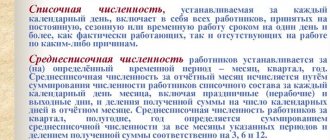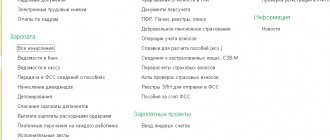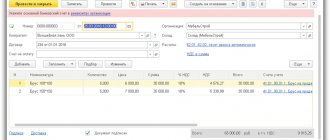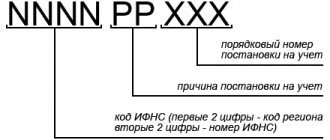Accounting for transactions related to trust management of property
The Ministry of Finance of Russia has developed “Instructions for reflecting in the accounting records of organizations operations related to the implementation of a property trust management agreement” (approved by order of the Ministry of Finance of Russia dated November 28, 2001 No. 97n, hereinafter referred to as the Instructions). This document applies to all legal entities, except for credit and insurance organizations, professional participants in the securities market, non-state pension funds and budgetary institutions for which there are departmental regulatory documents.
To reflect transactions related to the implementation of a property trust management agreement, it is proposed to use account 79 “Intra-business settlements”, subaccount 3 “Settlements under a property trust management agreement”. Such a subaccount will be present both in the working chart of accounts of the management founder and in the chart of accounts used by the trustee when maintaining a separate balance sheet. Mirror balances for these subaccounts link these two balances and show the value of the property in trust management. The “Instructions for using the chart of accounts for accounting financial and economic activities of organizations” (approved by order of the Ministry of Finance of Russia dated October 31, 2000 No. 94n) states that subaccount 79-3 is also used to account for settlements with the trustee, but this point of view was not found reflections in the correspondence of accounts proposed by the Instructions. In addition, this would contradict the purpose of the internal settlement account, which is intended to reflect settlements with counterparties under contracts.
EXAMPLE No. 1
The hotel complex, which is transferred to trust management, is part of the company’s fixed assets and is reflected in a special account. All property through a trustee is used in activities subject to VAT.
In accordance with the trust management agreement, the founder of the management has the right, if necessary and at his own discretion, to carry out work on major repairs, reconstruction, or replenishment of the property.
Tax authorities denied the property owner (the founder of the management) the right to deduct VAT on contractor services related to the repair of fixed assets. According to tax authorities, the owner of the property must restore the VAT amounts in accordance with Article 170 of the Tax Code of the Russian Federation.
Separate balance sheet and trustee's report
A trust is not the only situation in which a separate balance sheet is required. However, a separate trust balance sheet has a number of distinctive features:
- mandatory allocation and management arising from the nature of the contractual relationship of trust management;
- belonging to the reporting of the founder of the management;
- drawing up on behalf of the trustee (indicating his status), associated with the founder of management only by contractual relations - that is, the records are kept by the trustee;
- the procedure for recording transactions is prescribed by the Instructions;
- on the basis of accounting data, all necessary indicators must be determined for inclusion in the unified financial statements of the founder of the management by line-by-line summation;
- the trustee, not being the subject of taxation in relation to the property transferred to trust management and transactions with it, does not have sufficient information to reflect tax obligations.
Note that paragraph 11 of the Instructions states that for each trust management agreement, the manager must open a separate sub-account to account 79 “Intra-business settlements” in the context of the management founder and the beneficiary (the Civil Code of the Russian Federation uses the term “beneficiary”). This situation is possible only if the trustee keeps records of all contracts on one, his own balance sheet. In addition, settlements with beneficiaries are not intra-economic and are not subject to reflection on account 79. As part of a separate balance sheet, this account can only be opened for settlements with the founder of the management under an agreement with whom this balance is maintained. If a trustee carries out trust management of the property of several management founders, this will be reflected in his accounts for accounting for settlements upon receipt of remuneration (the Instructions provide for the use of account 76), and not in separate balance sheets for each agreement.
A separate balance sheet must be opened for each trust management agreement. Thus, the financial result of the management founder will be distributed across two (or more, if he has concluded more than one management agreement) balance sheets, and the total tax liabilities for all types of activities will be reflected in his main balance sheet (see diagram 1). It follows from this that when carrying out the reformation, the local financial result in each individual balance sheet must be transferred to account 84 “Retained earnings (uncovered loss)”, since the Instructions do not provide for its transfer to the main balance sheet through account 79-3.
Due to the fact that the form of the trustee's report for accounting purposes is not defined by the Instructions, it can be proposed to use a balance sheet containing data on all accounts of a separate balance sheet with the necessary breakdowns, or financial reporting forms.
VAT on manager services
Trustee services are subject to VAT at a general tax rate of 20%.
The date of implementation of services is determined on the basis of the report on the activities of the trustee. No later than five days after the report is submitted, the manager issues an invoice to the founder of the management for the amount of his remuneration.
If the trustee performs his duties free of charge, then such a provision must also be specified in the agreement.
But VAT is calculated on the amount of remuneration even if the contract does not provide for its payment.
The fact is that the provision of services free of charge is recognized as subject to VAT (subclause 1, clause 1, article 146 of the Tax Code of the Russian Federation). The procedure for forming the tax base for such transactions is provided for in paragraph 2 of Article 154 of the Tax Code of the Russian Federation.
And this norm provides that the tax base is the cost of services, calculated taking into account Article 105.3 of the Tax Code of the Russian Federation. This article regulates the price of a transaction between related parties.
Accounting by the founder of management on the main balance sheet
When transferring assets into trust management, their value is taken to be equal to the accounting estimate in the accounting of the management founder as of the date the agreement comes into force. Confirmation of receipt of property transferred to trust management for the founder of the management may be a notice of the posting of property from the trustee or a primary accounting document marked “D.U.” (copy of invoice, acceptance certificate, etc.).
The instructions (clause 4) suggest that the founder reflect the transfer of assets in the debit of account 79-3 in correspondence with the credit of accounts 01 “Fixed Assets”, 04 “Intangible Assets”, 58 “Financial Investments”, etc., while simultaneously writing off the amounts of accumulated depreciation from debit accounts 02 “Depreciation of fixed assets” and 05 “Depreciation of intangible assets” to the credit of account 79-3 “Settlements under a property trust management agreement.”
According to paragraph 12 of the Instructions, during the period of trust management, depreciation on the transferred asset on a separate balance sheet is calculated by the trustee (using the same standards and terms that were applied before the transfer). When returning assets from trust management, reverse entries are made, and the amount of depreciation is assumed to be equal to that prevailing at the end of the contract.
Funds received by the founder of management under the agreement, in accordance with paragraph 5 of the Instructions, must be accounted for as a credit to account 79-3 “Settlements under the property trust management agreement” in correspondence with the debit of cash accounting accounts. To ensure separate accounting of obligations to return the transferred property from operations to account for cash flows within the framework of the trust management agreement, you can open additional second-order subaccounts to account 79-3 “Settlements under the property trust management agreement”, or maintain detailed analytical accounting.
It is proposed to take into account compensation for losses caused to the founder of the trust management by recording Debit 76 “Settlements with various debtors and creditors” Credit 91-1 “Other income”. Thus, the reflection of this operation is separated from the on-farm settlements accounted for in account 79-3. It seems to us that the recommended scheme is suitable only for those types of losses that have not yet been reflected on a separate balance sheet (for example, lost profits). If the caused loss was previously recorded on the accounting accounts within a separate balance sheet (99 “Profits and Losses”, 84 “Retained Earnings”), then the accrued compensation should be reflected on the same accounts as repayment of previously recognized losses.
The instructions (clause 7) establish the following procedure for drawing up financial statements by the founder of the management. It must fully include the data provided by the trustee on assets, liabilities, income, expenses and other indicators. In the balance sheet of the management founder, data on account 79 “Intra-business settlements”, subaccount 3 “Settlements under the property trust management agreement” are not included. Disclosure of information related to the implementation of the trust management agreement as part of the explanatory note to the financial statements is carried out in accordance with the rules established by PBU 12 / “Information by segments” (approved by order of the Ministry of Finance of Russia dated January 27, 2000 No. 11n). In this case, the manager must comply with the accounting policies adopted by the founder of the management.
Civil relations
General legal characteristics. Terminology. Trust relations ch. 53 of the Civil Code of the Russian Federation (Civil Code of the Russian Federation) are regulated as obligations arising from the agreement, and, accordingly, as an independent type of agreement - trust management of property. In accordance with paragraph 1 of Art. 1012 of the Civil Code of the Russian Federation, under a property trust management agreement, one party (the management founder) transfers property to trust management for a certain period of time to the other party (the trustee), and the other party undertakes to manage this property in the interests of the management founder or the person specified by him (the beneficiary). The transfer of property into trust management does not entail the transfer of ownership of it to the trustee, and the latter is obliged to indicate in all transactions with third parties that he is acting as a trustee, i.e. thereby emphasizing that this transaction is not being made in his personal interests, but in the interests of a third party. Despite this, the trustee is not a representative, since persons acting in someone else’s interest, but on their own behalf, are not representatives, as established in Chapter. 10 “Representation. Power of attorney" of the Civil Code of the Russian Federation. As a general rule, relations under a property trust management agreement are of a fiduciary, confidential nature. Fiduciary relationships are characterized by special trust placed by the founder of the trust property to the trustee or manager as a person who, in his opinion, is capable of exercising rights to certain property. Corresponding to special trust is the concept of fiduciary obligation, which arises when one person acts solely in the interests of another person. When exercising his rights and performing his duties, the trustee must act in good faith and in a manner that is best from the point of view of the interests of the persons designated as beneficiaries in accordance with the trust management agreement. The exclusive right to determine which method of action in the exercise of these rights and performance of duties is optimal for the interests of the beneficiaries of the beneficiaries belongs to the trustee. The trust agreement is real. It is considered concluded from the moment the property is transferred to trust management. If the subject of the agreement is real estate, then it is subject to state registration and is considered concluded from the moment of its registration. A trust management agreement can be either paid or gratuitous. If it is paid, then the amount and form of remuneration must be determined. If the trustee is an entrepreneur, then the agreement is always compensated. If the form and amount of remuneration are not determined, then such a remunerative agreement is considered not concluded. A trust agreement is free of charge if this is expressly stated in the law or in the agreement (guardianship). The paid trust management agreement is mutual (bilaterally binding). A gratuitous trust management agreement is unilaterally binding, since the founder has no obligations. This agreement is free. Exception: trust management on the grounds provided for by law (Article 1026 of the Civil Code of the Russian Federation): - when appointing guardianship, trusteeship (Article 38 of the Civil Code of the Russian Federation); - when a citizen is recognized as missing; - with patronage; - in inheritance legal relations in the case of a will - the executor; - upon liquidation of a legal entity - from the bankruptcy trustee. This list is not closed. Clause 3 of Art. 1012 of the Civil Code of the Russian Federation establishes that the trustee carries out transactions with property transferred to trust management on his own behalf, indicating at the same time that he acts as such a manager. This condition is considered to be met if, when performing actions that do not require written documentation, the other party is informed about their performance by the trustee in this capacity, and in written documents after the name of the trustee the note “D.U.” is made. In the absence of an indication of the trustee's action in this capacity, the trustee is obligated to third parties personally and is liable to them only with the property belonging to him. The list of property that can be transferred to trust management is contained in Art. 1013 of the Civil Code of the Russian Federation. By virtue of clause 1 of this article, objects of trust management can be enterprises and other property complexes, individual objects related to real estate, securities, rights certified by uncertificated securities, exclusive rights and other property. Money cannot be an independent object of trust management, except in cases provided for by law (Clause 2 of Article 1013 of the Civil Code of the Russian Federation). So, according to clause 3, part 2, art. 5 of Federal Law No. 395-1 of December 2, 1990 “On Banks and Banking Activities,” a credit institution has the right to carry out trust management of funds and other property under an agreement with individuals and legal entities. By virtue of Art. 5 of the Federal Law of April 22, 1996 N 39-FZ “On the Securities Market”, the activity of managing securities is recognized as the activity of trust management of securities, funds intended for making transactions with securities and (or) concluding agreements that are financial derivatives tools. A professional participant in the securities market who carries out securities management activities is called a manager. When applying paragraph 2 of Art. 1013 of the Civil Code of the Russian Federation, one should take into account the position set out in the Resolution of the Federal Antimonopoly Service of the Volga Region dated October 1, 2002 N A65-15242/01-SG3-13/33. Since receivables represent property in the form of a set of rights (claims) belonging to the creditor for unfulfilled monetary obligations of third parties, and not money as such, the court came to the conclusion that there is no reason to consider the agreement not to comply with paragraph 2 of Art. 1013 of the Civil Code of the Russian Federation. As noted by the FAS Moscow District in Resolution No. KG-A41/112-01 dated January 30, 2001, if we assume that the parties intended to transfer into trust management the funds received by the manager under a writ of execution or from the exercise of the right to receive them, then such the agreement is void due to clause 2 of Art. 1013 of the Civil Code of the Russian Federation. By virtue of clause 3 of Art. 1013 of the Civil Code of the Russian Federation, property under economic control or operational management cannot be transferred to trust management. Transfer to trust management of property that was under economic management or operational management is possible only after the liquidation of the legal entity in whose economic management or operational management the property was, or termination of the right to economic management or operational management of the property and its receipt by the owner as otherwise provided by law reasons. Taking into account this norm, the Seventeenth Arbitration Court of Appeal in Resolution No. 17AP-1346/2008-GK dated 04/09/2008 indicated that agreements for the management of an apartment building presented by a municipal unitary enterprise - a management company in the housing and communal services sector are void, invalid transactions. The enterprise referred to these agreements to justify the status of the management organization and as evidence of management of the apartment building, but the court found that their contents related to trust management agreements. Clause 2 of Art. 296 of the Civil Code of the Russian Federation establishes that the owner of property has the right to withdraw excess, unused or misused property assigned to a state-owned enterprise or institution or acquired by a state-owned enterprise or institution at the expense of funds allocated to it by the owner for the acquisition of this property. The owner of this property has the right to dispose of property seized from a state-owned enterprise or institution at his own discretion. Trustees manage securities and client funds on their own behalf for a fee for a specified period. In accordance with Art. 1013 of the Civil Code of the Russian Federation, funds cannot be an independent object of trust management. Therefore, it should be clarified that we are talking here only about funds intended for investment in securities and received in the process of managing securities. Relations related to the attraction of funds and other property by placing shares or concluding trust management agreements for the purpose of their association and subsequent investment in relevant objects, as well as with the management (trust management) of the property of investment funds, accounting, storage of property of investment funds and control over the disposal of the specified property are regulated by Federal Law of November 29, 2001 N 156-FZ “On Investment Funds”. Parties. Founder of the management and trustee. The parties to the property trust management agreement are the management founder (usually the owner of the property) and the trustee, who is obliged to manage the property transferred to him in the interests of the management founder (beneficiary). This is the main feature of this agreement. The legislation does not impose special requirements on the parties to a property trust management agreement. By virtue of Art. 1014 of the Civil Code of the Russian Federation, the founder of trust management is the owner of the property, and in cases provided for in Art. 1026 of the Civil Code of the Russian Federation, another person. The transfer of property into trust management does not entail the transfer of ownership of it to the trustee, and the founder of the management himself, by virtue of Art. 1014 of the Civil Code of the Russian Federation must be the owner of this property. In cases provided for by law, it is not the owner himself who has the right to act as the founder of the management, and therefore the party to the agreement, but another person - the guardianship and trusteeship body (Articles 38, 42, 43 of the Civil Code of the Russian Federation), a notary or executor of a will ( executor) (Article 1173 of the Civil Code of the Russian Federation), etc. However, in these cases, the founder of the management acts in the interests of the owner himself or a third party indicated by him (clause 4 of Article 209 of the Civil Code of the Russian Federation). The role of the founder of the management, who is not the owner of the property, can also be the holder of an exclusive right, as well as a right of obligation certified by a book-entry security (Article 1013 of the Civil Code). This should also include the person who transferred into trust management the funds placed with the credit institution. Since the amount in the bank account represents an obligatory right of claim, and not the thing itself, the founder of management - the investor acts in this case not as the owner, but as the holder of the obligatory right. The foregoing does not affect the scope of his rights as a founder of trust management. In this case, they are close in scope to the rights of the owner. State or municipal property can be transferred into trust management on behalf of the owner (the Russian Federation as a whole, a subject of the Russian Federation, a municipal entity) only by a body authorized by the owner to manage his property. The trustee, as a rule, has the following responsibilities: - manage the property transferred to him by the founder, in accordance with the instructions specified in the constituent act, and in the interests of the beneficiary, while exercising the necessary degree of care. The trustee may alienate the specified property if this is expressly permitted to him by agreement or law; - at the beneficiary’s first request, submit a report on matters related to property management; - transfer all received income and benefits, unless otherwise provided in the agreement. By virtue of paragraph 1 of Art. 1015 of the Civil Code of the Russian Federation, a trustee can be an individual entrepreneur or a commercial organization, with the exception of a unitary enterprise. In cases where trust management of property is carried out on the grounds provided for by law, the trustee may be a citizen who is not an entrepreneur, or a non-profit organization, with the exception of an institution. Institutions, state authorities and local governments cannot perform the functions of trust management - activities aimed at making a profit. The only restriction for individuals regarding the candidacy of a trustee follows from the norm formulated in paragraph 3 of Art. 1015 of the Civil Code of the Russian Federation, according to which a trustee cannot be a beneficiary under a trust management agreement. Thus, it is impossible to appoint an heir as a trustee. In the case where inheritance is carried out under a will in which an executor of the will is appointed, the rights of the founder of the trust management belong to the executor of the will. A trust management agreement, in which the executor of the will (executor) acts as the founder of the management, can, at the request of the parties to the agreement, be certified by a notary. Transaction form. Clause 1 of Art. 1017 of the Civil Code of the Russian Federation establishes the requirement that an agreement for trust management of movable property must be concluded in writing. The parties have the right not to draw up a single written document; It is enough that both the offer (proposal to conclude an agreement) and the acceptance comply with the rules of paragraphs 2 and 3 of Art. 434, art. Art. 435, 436 and paragraph 3 of Art. 438 Civil Code of the Russian Federation. The conclusion of certain types of property trust management agreements has its own characteristics. Thus, a trust management agreement for a mutual investment fund is concluded only as an adhesion agreement, which has a standard form (the trust management agreement in this case is called the rules for trust management of the mutual fund). An individual agreement on trust management of funds is concluded with a credit institution in the manner and form provided for in Art. 1017 of the Civil Code of the Russian Federation. With regard to trust management agreements for common banking management funds (FBU), it should be noted that such agreements can be concluded either as accession agreements (Article 428 of the Civil Code), or in the manner prescribed by Art. 1017 of the Civil Code of the Russian Federation. Essential conditions. The essential terms of the property trust management agreement are regulated by Art. 1016 of the Civil Code of the Russian Federation. The property trust management agreement must indicate: - the composition of the property transferred to trust management; — the name of the legal entity or the name of the citizen in whose interests the property is managed (the founder of the management or the beneficiary); — the amount and form of remuneration to the manager, if the payment of remuneration is provided for in the contract; - contract time. The composition of the property transferred to trust management must be clearly and in detail described. Failure to agree on this condition, as well as the conditions on the term and form of remuneration, will entail the recognition of such an agreement as not concluded. In this case, the founder may accuse the manager of unjust enrichment. But this is difficult to prove, so it is worth agreeing on a condition on the exact list of property being transferred, including the amount of money. The term of management cannot exceed five years. Lawmakers have limited it to protect the owner. Without a special statement from the parties, the agreement upon expiration of its validity period will remain in force under the same conditions. A management agreement cannot be concluded to perform any one-time action, since “the nature of trust management presupposes the ongoing nature of the relationship” (see Resolution of the Federal Antimonopoly Service of the Moscow District dated January 30, 2001 N KG-A41/112-01). Property transferred to trust management is separated from other property of the management founder, as well as from the property of the manager (Article 1018 of the Civil Code of the Russian Federation). These objects are reflected by the trustee on a separate balance sheet, for which he maintains independent accounting. If a manager receives securities for trust management from different founders, then they can combine their stakes of shares for transfer to him (Article 1025 of the Civil Code of the Russian Federation). Property encumbered with a pledge can be transferred to trust management, since the pledgor remains its owner and retains the ability to dispose of it. In addition, additional income from the profitable use of the property will help the owner fulfill his obligations to the mortgagee. Legislators have established that the manager must be warned about the pledge. Otherwise, he has the right to demand in court the termination of the contract and payment of remuneration for one year (clause 2 of Article 1019 of the Civil Code of the Russian Federation).
Accounting on a separate balance sheet of trust management
The trustee takes into account transactions for receiving property in trust management also using account 79-3, with entries mirroring those made by the founder when transferring this property. The Guidelines do not address the issue of how the transfer of income to the beneficiary should be reflected on a separate balance sheet. In our opinion, this is a completely different situation than the transfer of income to the founder of the management. In this case, there is not a return of funds to the owner, but their alienation in favor of the beneficiary. Therefore, in a separate balance sheet, the transfer of funds to the beneficiary can be reflected using account 76 “Settlements with various debtors and creditors.”
The accounting methodology does not provide for rules for reflecting settlements with the budget for taxes in the case of trust management. On the one hand, it seems that, according to the principle of matching income and expenses, taxes are preferably calculated in the same information system in which the object of taxation is recorded. On the other hand, the trustee maintaining a separate balance sheet may not have information about the taxation regime applied by the founder of the management, benefits, etc. Thus, there is a conflict between the subject of taxation and the subject of accounting, which is the trustee. Note that the scheme for recording value added tax does not allow it to be recorded on the main balance sheet of the management founder. Therefore, we will proceed from the fact that VAT calculations are carried out on a separate balance sheet, and the founder takes other taxes into account on the main balance sheet.
Accounting with the trustee on its own balance sheet
Since the trustee may receive remuneration under the trust agreement, this transaction must be reflected in his own balance sheet. It reflects the accrual of remuneration by recording Debit 76 “Settlements with the founder of management” Credit 90-1 “Revenue”, if trust management is its usual activity, or Credit 91-1 “Other income” in other cases (the Instructions only provide for crediting account 90 “ Sales").
Expenses associated with the implementation of this type of activity are required to be recorded in account 20 “Main production” or 26 “General business expenses” separately for each contract. Since trust management activities are allocated to a separate balance sheet, it would be logical to initially make all related expenses within this balance sheet from a separate current account (cash). However, the legislator has provided for the possibility of using a different scheme - by agreement of the parties, the trustee can pay expenses on his own behalf (at this moment he acts as an ordinary legal entity) with their subsequent reimbursement. In our opinion, such expenses should not be taken into account in the same way as those expenses of the manager for maintaining the contract, compensation for which is not provided.
But the Guidelines instruct us to reflect all expenses paid by the trustee on his own behalf, both reimbursed and incurred by him from remuneration (for example, administrative expenses), in expense accounts (20, 26) and then debited to sales accounts (90). Reimbursement of expenses by the founder of the management is accrued to the manager by entry Debit 76 Credit 90. (And this is not the only case when the financial department proposes to take into account reimbursable expenses in this way - in the letter of the Ministry of Finance of Russia dated September 24, 2001 No. 04-02-05/2/127, similar instructions are given for contracts of agency). In our opinion, this is methodologically incorrect and contradicts the norms of civil law, which distinguish between the manager’s remuneration and reimbursement of expenses. These expenses are not expenses of the trustee, and their reimbursement is not his income and should not be reflected in its composition. The tax authorities also share the same opinion (based on the provisions of paragraph 2 of Article 276 of the Tax Code of the Russian Federation). And account 90 in the chart of accounts is specifically designed to account for the revenue of organizations from ordinary activities. In order not to overestimate the revenue and cost of trust management services, reimbursable expenses should be reflected in one entry Debit 76 “Settlements with the founder of management” Credit 76 “Settlements with the supplier of goods (works, services)”, expenses for which are reimbursed under the terms of the contract.
Example
According to the agreement, the founder of the management transferred to the trustee an intangible asset with an initial cost of 100,000 rubles, depreciation - 20,000 rubles. The manager used the asset to provide services, the revenue for which amounted to RUB 30,000. plus VAT 18% - RUB 5,400. When implementing the contract, the manager accrued depreciation in the amount of 1,000 rubles, took into account expenses in the amount of 11,800 rubles, including VAT, and accrued remuneration in the amount of 4,720 rubles, incl. VAT. Payment was made from the proceeds from the provision of services. The balance on the management account was completely transferred to the founder of the management. The trustee's expenses for carrying out this type of activity amounted to RUB 3,000. Then, due to the manager’s improper performance of his duties, the founder of the management suffered losses in the form of lost profits, which were estimated by the parties at 50,000 rubles. The manager transferred this amount to the founder at his own expense. Subsequently, the contract was terminated and the asset was returned to the management founder.
As part of this example, we will consider a scheme for reflecting trust management operations for all parties to the agreement, if necessary, supplementing the Instructions with what, in our opinion, are missing entries.
Income tax
Let us immediately note that participants in a trust management agreement cannot use the cash method. Therefore, if previously the company used the cash method, then it must switch to the accrual method from the beginning of the tax period in which such an agreement was concluded (clause 4 of Article 273 of the Tax Code of the Russian Federation).
The specifics of taxation of participants in a trust management agreement are prescribed in Article 276 of the Tax Code of the Russian Federation. When executing a trust management agreement, the trustee must organize tax accounting of income and expenses, taking into account the features established in Article 332 of the Tax Code of the Russian Federation.
Let us outline the general points:
- Property (including property rights) transferred under a property trust management agreement is not recognized as income of the trustee.
- The remuneration received by the trustee is his income from the sale. In this case, expenses associated with the implementation of trust management are recognized as expenses of the trustee, unless the property trust management agreement provides for reimbursement of these expenses by the founder of the trust management.






